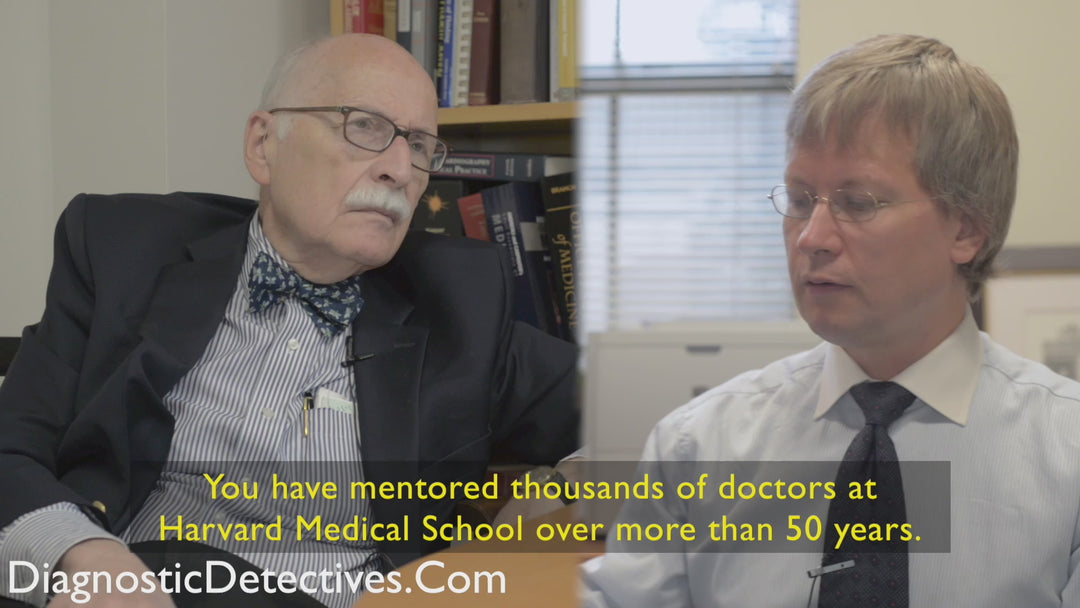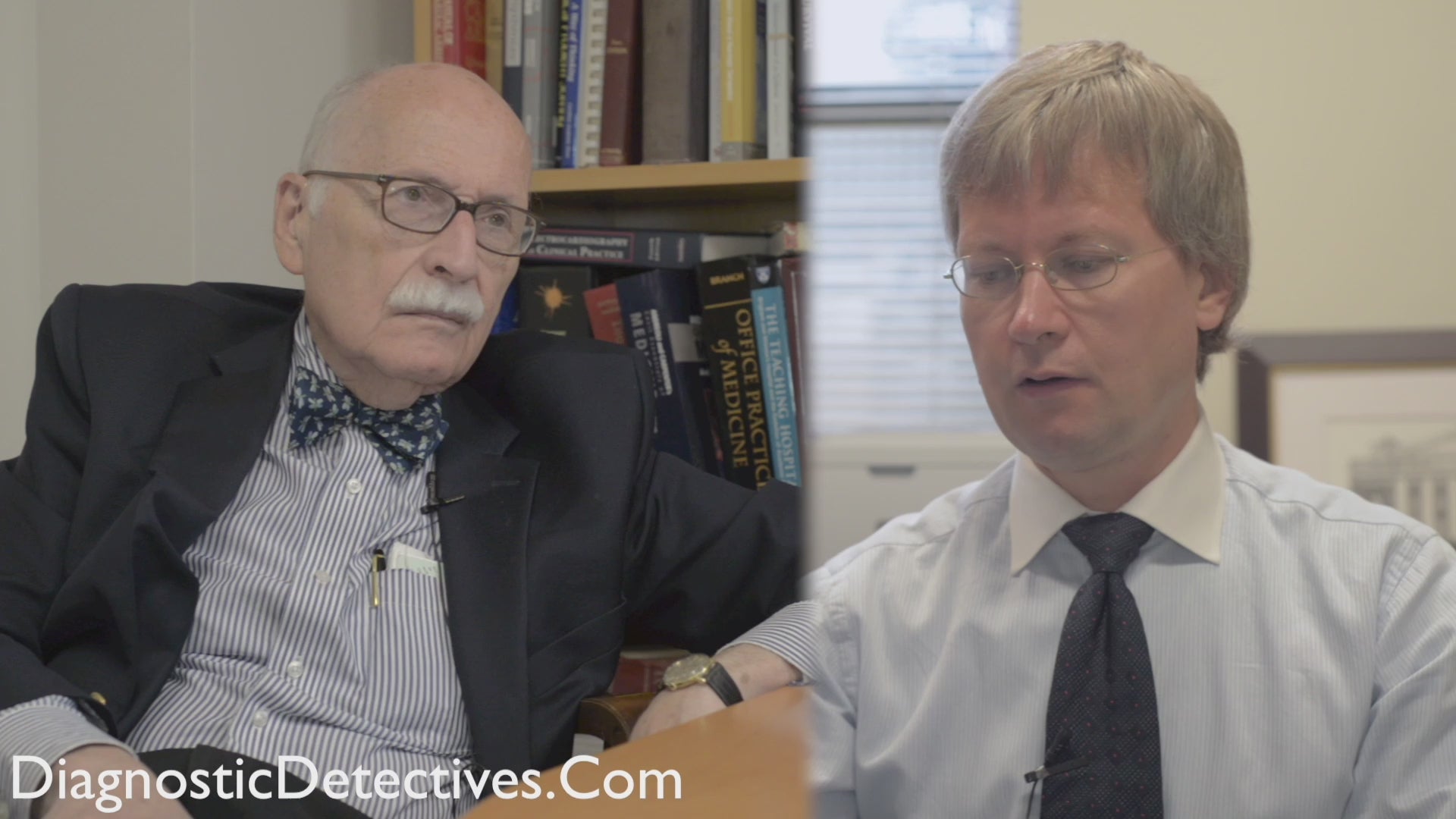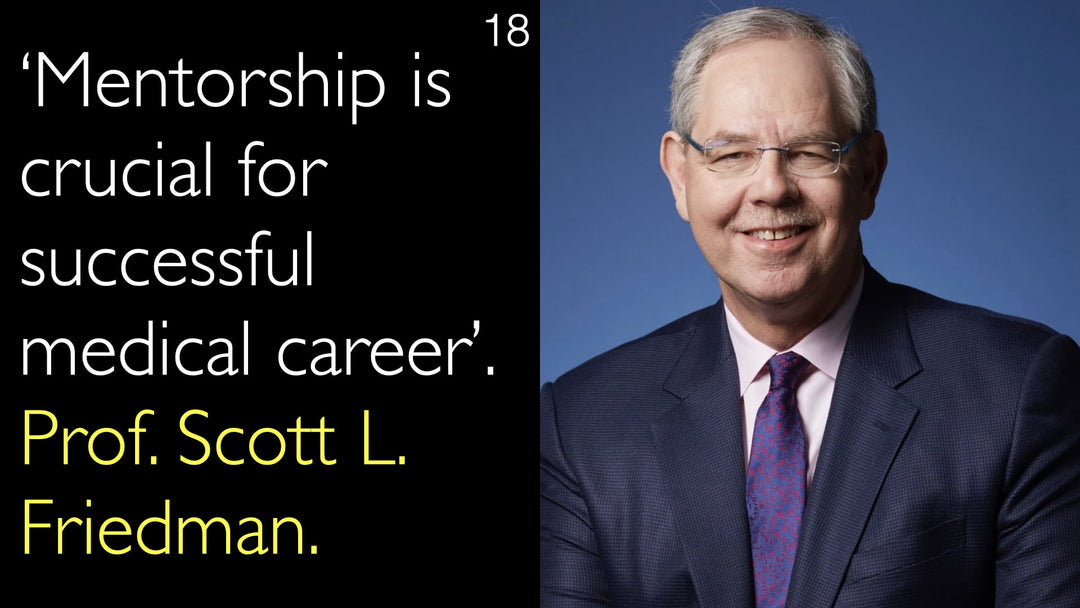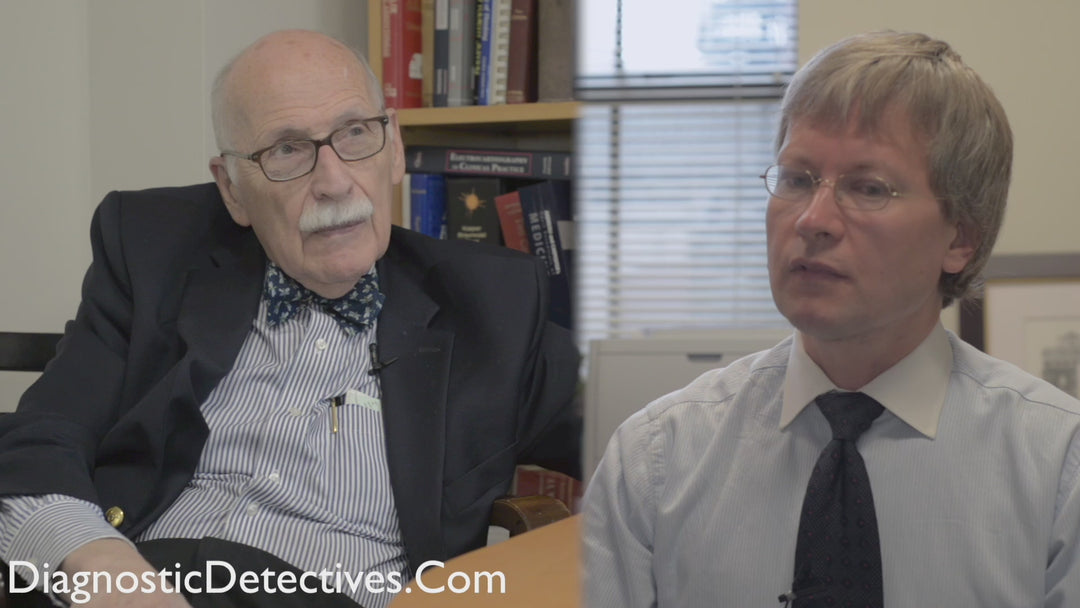Dr. Marshall Wolf, MD, en førende ekspert inden for medicinsk uddannelse og vejledning, forklarer, hvordan man bliver en fremragende læge. Han understreger, at en mentors sande rolle er at hjælpe mentee’en med at opdage deres egen faglige glæde. Dr. Wolf fremhæver også den afgørende betydning af at vælge en uddannelsesordning med fremragende kolleger. Han skitserer forskellige karriereveje for aspirerende klinikere kontra akademiske læger og bekræfter, at enestående klinisk praksis kan opnås uden for akademiske centre.
Sådan finder du den bedste medicinske uddannelse og mentorvejledning til din karriere
Spring til afsnit
- Den sande rolle som medicinsk mentor
- Valg af det bedste medicinske uddannelsesprogram
- Betydningen af kolleger i medicinsk uddannelse
- Veje til at blive en fremragende kliniker
- Opbygning af en succesfuld akademisk medicinsk karriere
- Fuld transskription
Den sande rolle som medicinsk mentor
Dr. Marshall Wolf, MD, definerer kerneprincipet for effektiv medicinsk mentorvejledning. En mentors primære opgave er at finde ud af, hvad mentee ønsker at gøre. Processen handler ikke om at kopiere mentorens egen karrierevej, men om at hjælpe mentee med at vælge personlige mål, der giver professionel glæde.
Dr. Marshall Wolf, MD, forklarer, at mentorvejledning er en støttende og vejledende relation, der fokuserer på den unge læges aspirationer. Denne tilgang sikrer, at karrierevejen bliver personligt meningsfuld og bæredygtig.
Valg af det bedste medicinske uddannelsesprogram
Valg af det rigtige medicinske uddannelsesprogram er en afgørende beslutning for enhver læge. Dr. Marshall Wolf, MD, råder læger til at finde et program, hvor de føler sig tilpas. Miljøet og kulturen på institutionen er afgørende, og kunsten er at finde et program med talentfulde og dygtige kolleger.
Dr. Wolf antyder, at kvaliteten af meduddannelseslæger er en nøgleindikator, da disse personer bliver et livslangt professionelt netværk. Et fantastisk uddannelsesprogram defineres netop af de kolleger, man lærer sammen med hver dag.
Betydningen af kolleger i medicinsk uddannelse
Kvaliteten af dine meduddannelseslæger er den mest betydningsfulde faktor i medicinsk uddannelse. Dr. Marshall Wolf, MD, pointerer, at kolleger er med dig resten af livet. Han illustrerer dette med sin egen erfaring fra Brigham Hospital, hvor af hans tretten internistkolleger de fleste blev professorer i medicin eller ledere inden for feltet.
Dr. Marshall Wolf, MD, understreger, at læring fra kolleger er uvurderlig. Selvom fakultetet er vigtigt, giver den fælles rejse med kolleger en uovertruffen uddannelse og støtte. Dette kolleganetværk bliver en hjørnesten i en læges karriere.
Veje til at blive en fremragende kliniker
At blive en fremragende kliniker er et klart mål for mange læger. Dr. Marshall Wolf, MD, skitserer en praktisk vej for denne ambition: En ung læge skal finde og arbejde med fremragende klinikere. Det er afgørende at tiltræde en lægepraksis med dygtige, dedikerede praktikere.
Dr. Wolf bekræfter, at man kan blive en god kliniker uden et akademisk medicinsk center. Læring sker ved at arbejde med erfarne læger og være opmærksom. Denne praktiske, læringsbaserede model forbliver en effektiv måde at mestre klinisk medicin på.
Opbygning af en succesfuld akademisk medicinsk karriere
Forfølgelse af en akademisk medicinsk karriere kræver en anden strategi. Dr. Marshall Wolf, MD, forklarer, at et akademisk medicinsk center er nødvendigt, da disse institutioner har de specifikke uddannelsesprogrammer til at uddanne akademiske læger. Kvaliteten af fakultetet bliver her endnu mere kritisk.
En mentor på fakultetet er uundværlig for en akademisk karriere. Denne mentor hjælper med at udvikle et unikt sæt færdigheder og faciliterer introduktioner til andre ledere inden for feltet. Dr. Wolf understreger, at sådan støtte er afgørende for at fremme forskning og akademiske bestræbelser.
Fuld transskription
Dr. Anton Titov, MD: Du har vejledt tusindvis af læger på Harvard Medical School over mere end 50 år. Hvad betyder det at være mentor i medicin i dag?
Dr. Marshall Wolf, MD: Mentorens opgave er at finde ud af, hvad mentee ønsker at gøre. Mentor skal hjælpe den person med at vælge deres mål.
Det vigtige er dette: Mentorens opgave er ikke at overbevise mentee om at gøre, hvad mentor gjorde. Mentor skal hjælpe mentee med at tænke over, hvad der ville give dem glæde i deres professionelle liv, og hjælpe dem med at opnå det.
Dr. Anton Titov, MD: Over 90% af vores seere er uden for USA. Så fra et amerikansk og internationalt perspektiv, hvordan bliver man den bedst uddannede læge i dag?
Dr. Marshall Wolf, MD: Det, der gør et uddannelsesprogram fantastisk, er kvaliteten af dine meduddannelseslæger. Fordi de vil være med dig resten af livet.
Da jeg uddannede mig på Brigham Hospital, var der fjorten internister. Af mine 13 kolleger er en afdød. Jeg havde en meget fremtrædende karriere på denne institution og NIH. En læge driver en enorm praksis, og alle de andre er professorer i medicin. Jeg lærte meget fra dem i mit uddannelsesprogram.
Det, der gør uddannelsesprogrammet fantastisk, er, hvad man lærer fra sine kolleger. Fakultetet er fint. Men dine kolleger er særligt vigtige.
Kunsten er at finde et program, hvor du føler dig tilpas. Du bør kunne lide kollegerne i dit medicinske uddannelsesprogram. Disse personer bør være talentfulde og dygtige.
Dr. Anton Titov, MD: Nogle unge læger er færdiguddannet fra medicinstudiet. De er i et uddannelsesprogram internationalt. Måske er der ikke ret mange meget højt kvalificerede, meget beslutsomme læger under uddannelse eller på fakultet omkring. Ikke desto mindre er en ung læge meget beslutsom. Hvad kunne en ung læge gøre for at maksimere deres chancer for at være den bedste moderne læge?
Dr. Marshall Wolf, MD: Det afhænger af, om du taler om at være den bedste praktiserende læge, eller om de ønsker at have en akademisk medicinsk karriere.
En ung læge ønsker måske at være en fremragende kliniker. Så skal de finde nogle fremragende klinikere og arbejde med dem og lære fra dem. Tiltræd en lægepraksis, hvor folk er dygtige. Bliv i den praksis et stykke tid, og lær af dine kolleger.
En ung læge ønsker måske en akademisk karriere. Så bliver du nødt til at finde et akademisk medicinsk center. Det kræver, at du finder ud af, hvordan du kommer til sådan et sted.
Jeg tror ikke, du kan have en succesfuld akademisk medicinsk karriere uden hjælp fra et akademisk medicinsk center. Det skal have et uddannelsesprogram for at uddanne læger, der ønsker at arbejde akademisk.
Den anden ting er, at hvis du taler om en akademisk karriere, så bliver kvaliteten af fakultetet også lidt mere vigtig. Fordi du har brug for en mentor på fakultetet, der vil hjælpe dig med at udvikle et sæt færdigheder.
Mentoren vil også hjælpe dig med at møde andre mennesker inden for feltet. Din mentor bør hjælpe med at fremme din akademiske karriere.
Dr. Anton Titov, MD: Er det muligt at blive en god praktiserende læge i dag uden at være på et akademisk medicinsk center?
Dr. Marshall Wolf, MD: Åh, ja! Du kan blive en god kliniker, hvis du arbejder med gode klinikere. Du bør finde en gruppe talentfulde, dedikerede medicinske praktikere.
Disse læger kan have uddannet sig på et akademisk center for mange år siden. Men de praktiserer medicin. Du kan lære at praktisere medicin fra dem, mens du arbejder med dem og er opmærksom.
Dr. Marshall Wolf har en legendarisk status som mentor for læger. Dr. Wolf deler visdom om, hvordan man bliver den bedst uddannede kliniker. Han fremhæver værdien af kolleger i et uddannelsesprogram.








